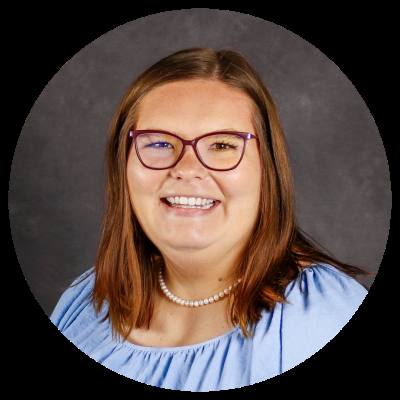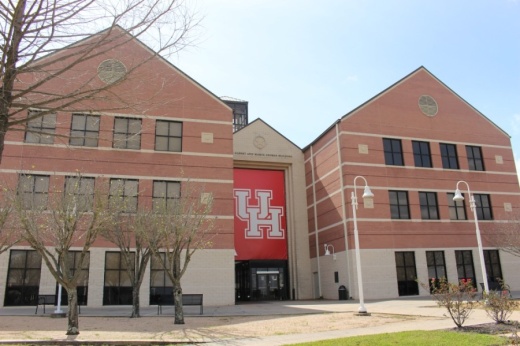Kathryn Tart, dean of the University of Houston’s College of Nursing, spoke with Community Impact Newspaper on May 13 about how the novel coronavirus is changing the way the university is educating nursing students. During the interview, she also discussed the potential long-term effects of the coronavirus on the nursing profession and the Houston medical community.
This interview has been edited for length and clarity.
How has the coronavirus pandemic affected your students in the College of Nursing?
The No. 1 question students always have is, “Am I going to graduate on time?” They're very anxious to graduate, so we at the University of Houston College of Nursing have been very responsive to that need.
We have a very strong curriculum, and when you have a strong curriculum, you can trust it to guide you through all the courses. Then, that's where the creative side of the faculty gets to come into play because we have to decide how are we going to help meet those objectives for the course. Are we going to be able to do a virtual simulation? There’s a lot of different modalities at our disposal to use to teach. We also have our accrediting bodies—the bodies that make sure that we're meeting the standards—and they have been extremely flexible in working with nursing education. So that's been very helpful.
How is the College of Nursing preparing for the fall semester?
I am anxious about coming back in the fall. What if we can't come back in the fall? How are we going to have our clinicals? The hospitals right now don't want us there. They don't have enough personal protective equipment, and they just don't want to have any increased exposure or increased risk. So that's why we're doing all of our lectures this summer in hopes that we can start coming back into the clinical in the fall. But if we don't come back, we'll have to go to another phase of creativity to figure out how we’ll manage all of those requirements.
Are you worried about students not returning to school in fall or enrollment being negatively affected?
I think people still want to come to school. We are very happy with our application pool. So I don't think we're going to go down in enrollment at all. I think we're going to grow actually. People want to know that they can make a difference; people want to know that they can impact people's lives in a very positive way, which is exactly what nursing does.
How is the coronavirus affecting the job market for graduating nursing students?
The workforce is kind of on a bit of a hiatus right now because there's not a lot of people in the hospitals. But the students will be trained, they will be educated and they should be ready to take their licensing exam. The Texas Nurses Association’s data shows that by the year 2030, Texas will be 60,000 nurses short. So it's really incumbent upon us as educators to make sure that we're producing the workforce.
What are the effects of the workforce being on a temporary “hiatus”?
I would hope that people would retool themselves. The nice thing about nursing is we don't have to be stuck in any one spot. So where is the need? The need may be with the elderly; the need may be in a nursing home. Let's work where the need is the greatest. I think there may be some shifts. So maybe the shift is not anymore in the clinic, but maybe the shift is now to home care, or maybe the shift is to telehealth. Nursing is great because when you get your license, you’re licensed to practice as a generalist nurse, and you can work anywhere where they require a license.
What long-term effects do you think the coronavirus might have on our local medical community?
One of the things that we've learned is how much our health care industry is based on elective surgeries. Our physicians and our health care providers have done a really excellent job of saying what is it that you have to do and what is elective. I think it will force us to look at what kinds of things have to be done because we also know that when patients have surgeries, they run the risk of dying; they run the risk of getting an infection; they run the risk of having the wrong medication; there's a lot of risks associated. I would love to see what happened to all of those untoward effects that we don't want to have happen. Have those decreased because we have not put our patients at risk any longer because of these elective surgeries?
Then, could we have more of a focus on preventative health? Could we say, “Hey, everybody, let's get your immunizations. Yes, you certainly want to make sure you take care of your blood pressure and your diabetes.” Can we focus more on exercise and making sure that people are fit? Can we focus more on mental health making sure that people have what they need so they're not depressed or stressed?
I definitely believe that telehealth is going to see a burgeoning in making sure that people have access to connect with their health care provider, their nurse practitioner or their physician. These are ways that we hopefully will be even more connected to the people who are helping to keep us healthy.
Are you concerned that people have been neglecting preventative health measures during the coronavirus pandemic?
I am very concerned about that. I am concerned that people aren't going to get their medications refilled. I am concerned that they may have chest pain, but they're too afraid to go to the hospital or they're too afraid to even call their doctor because they don't want to go anywhere. I am worried that people will say, “I don't want to have my child go to the clinic,” when they need to have their regular childhood immunizations and their regular checkups.
It's so important to have a conversation with your nurse practitioner or your physician. It's what we call the continuity of care. So this continuity has been kind of stifled. People don't want to get out, and I think there'll be a lot of pent-up demand, and we're going to see a lot of things that maybe we could have prevented.
What else are you thinking about during this time?
This last week has been Florence Nightingale’s birthday. Looking to her and the work that she did, and how groundbreaking it was, and how we're still doing that same kind of nursing care now. She was also a statistician, and she loved mathematics. She said that we use the statistics as a measurement to do God's will in caring for people. So you have to look at the science and let that help guide you. I think that as nurses, we need people so badly to practice social distancing and to wash their hands. It may hurt right now, but the numbers show us that we can mitigate a lot. If we don't do those things, the numbers also show us that we are hurting our whole community. So it’s a really tough spot. But if your numbers are not going down, you should not be out there. Let the numbers help guide your decisions. I would strongly encourage people to practice all the things that the CDC [Centers for Disease Control and Prevention] is asking us to do.





